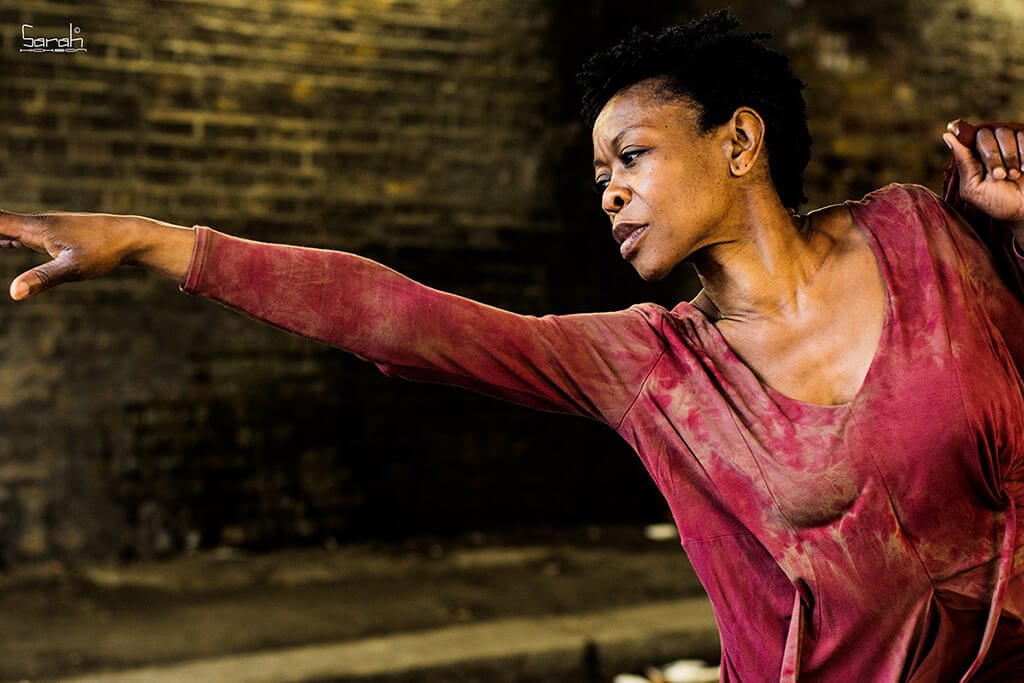Billed as “one woman’s epic journey to found a new nation,” Sarai is beautifully choreographed by Shane Shambhu; Karlina Grace-Paseda’s alternations between joyful, transcendent grace and excruciating effort, fear, and rage, make for a truly wonderful, eminently watchable performance. Simultaneously, Sarai also offers a fascinating, multi-faceted and many-layered, comprehensively original rendition of the promise of collective nationhood as the promise of individual fertility. First, the Abrahamic covenant mulled over, repeated with varying inflections and at various junctures, taken apart, reinterpreted, and made to fit the moment, becomes a collaborative adaptation. But second, and more crucially, tinctured through with singularities that make it comprehensible and meaningful to its human recipient, the multiplicities of the whole or the original covenant recede, leaving behind an invaluable residue: one woman’s indefatigable will, her one, passionate wish.
The production begins with a phantom pregnancy: Sarah (originally Sarai, later renamed by the Hebrew Bible/ Quran’s God to be an eventual “mother of nations”) is so devastated by her barrenness that her body (rebelliously, wretchedly remaking reality, mindlike, so her self is implacably indistinguishable from her desires) simulates the flutter of conception, the complacent discomfort and pride of gestation, the agony of childbirth, not once but three times. She has taken to retreating, inward and upward into the mountains, into lonely, private manifestations of her painfully public phantoms, to save herself, she informs us, from the indignity of her husband’s and other voyeurs’ consternation at witnessing her condition. Sarai is self-aware enough to detect in her visceral performances the uniquely human propensity for martyrdom; she is heroic enough to disregard the equally human inhumanity that has driven suffering, created and perpetuated by narratives, institutions, ordinances that shape identities, perennially into exile.
Paul Anthony Morris’s storytelling protagonist weaves and dips through chronologies, causes and consequences, intermittently following a reel of dramatic events, then careening back through time to invest her past with new meanings, or leaping forward to foresee and foretell (for her own benefit as well as her audience’s) utopic futures, just as she accompanies, turn by turn, the orchestra’s piercing elegiacs, exuberant momentum and extravagant gymnastics to wholly inhabit the stage with determined abandon. Sarai (as well as Sarai) wanders through the politics of poverty and migration, the processes of faith, doubt, and self-recognition, and the exigencies, limitations, as well as the artistry of language and power: Grace-Paseda’s exquisitely modulated, expressive face and form, as well as the colours and contours of the fabric that fashions the human selves (including her own self) that she observes and acts upon as midwife and healer, victim and queen, create a fantastic, and fantastically memorable, vulnerable and mercurial woman at the edge of what will become, in one telling, human history.

